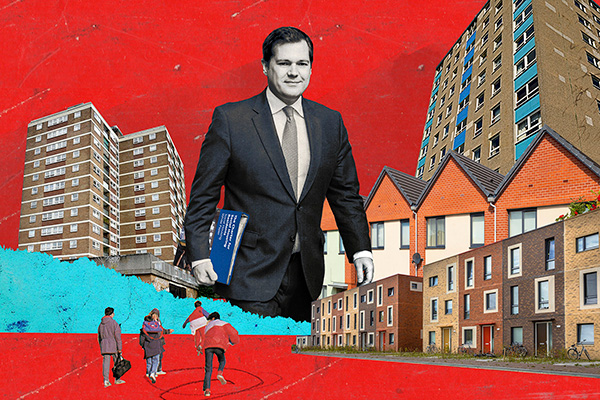You are viewing 1 of your 1 free articles

Alison Inman is a board member at Saffron and Tpas; former president of the CIH; and co-founder of SHOUT
It’s time we talk about housing association pay
It’s time for housing bodies and consultancies that advise on salaries to join a broader conversation about pay to support board members to make decisions that are fair and equitable, argues Alison Inman
It’s time we talked about pay
I almost wrote this piece in October, when the latest Inside Housing chief executive salary survey came out. If I had done, I’m sure it would have been full of (self) righteous indignation about a so-called social sector that allows its most senior people to trouser massive bonuses during a pandemic.
It would have written itself to be honest, but I think the subject of pay is broader than that. It’s more nuanced and something we don’t talk about either often or openly enough.
Housing associations are complex organisations, with massive turnovers, hefty loan books and a strict regulatory regime. They need to be led by the right people, and those people obviously deserve to be well-remunerated. I hope that’s pretty non-contentious.
But so do the people who have put themselves in harms way during the past 12 months. Carers, community workers, trades staff have worked so hard and at considerable risk to themselves and their families.
There seems to be a real blind spot and a reluctance to talk openly about pay and other benefits in the sector, about differentials and about the number of people working for housing organisations who are themselves in rent arrears, using foodbanks, unable to make ends meet.
I’m not a fan of bonuses. Call me old-fashioned, but being paid fairly for doing a good job feels like a good deal for what people (not me, but that’s a different column) go on about as being a ‘values-led sector’.
But if there are to be bonuses, then I reckon Notting Hill (now Notting Hill Genesis) had it right a few years ago – a simple metric and everyone gets exactly the same if performance exceeds that target. If that isn’t enough of an incentive to do your best, you are probably in the wrong job.
The responsibility for setting executive pay sits with housing association boards, usually through their remuneration committee.
There is a growing appetite among non-executive directors to broaden discussions about pay and to be much clearer about the mechanisms used to determine salaries. Above all, there is a desire to be both fair employers and careful stewards of the hard-earned rents our tenants pay.
“We spend a lot of time decrying market forces when talking about rents, but seem less willing to do that when it comes to salaries”
In the absence of transparent pay structures, the sector falls back on benchmarking to help set top salaries.
The problem with that is it only takes one organisation to give their chief executive an eye-watering pay rise and that will eventually filter down to their peers. Or as one consultant put it recently: “If everyone is aiming to pay at the median level, then salaries are only going in one direction.”
We spend a lot of time decrying market forces when talking about rents, but seem less willing to do that when it comes to salaries. Funny that.
We need to avoid the conceit that seems to operate in some parts of the economy where chief executives, executives etc need to be incentivised by higher and higher pay and generous bonuses, but those at the bottom can only be incentivised by low pay and insecurity.
So what to do? I think there are opportunities for the Chartered Institute of Housing, the National Housing Federation and the many consultancies that advise on salaries to join a broader conversation and to support board members to make decisions that are fair, equitable and they are truly comfortable with.
The Social Housing White Paper has made it clear that there needs to be greater transparency around pay. There are massive reputational risks to the housing sector when pay appears to get out of hand.
We need to be comfortable talking about differentials and someone, somewhere needs to be willing to say just when enough is enough.
Boards need to talk seriously about remuneration this year, and I look forward to joining that conversation.
Alison Inman, board member at Eastlight Community Homes, Saffron and Tpas; former president of the CIH; and co-founder of SHOUT











